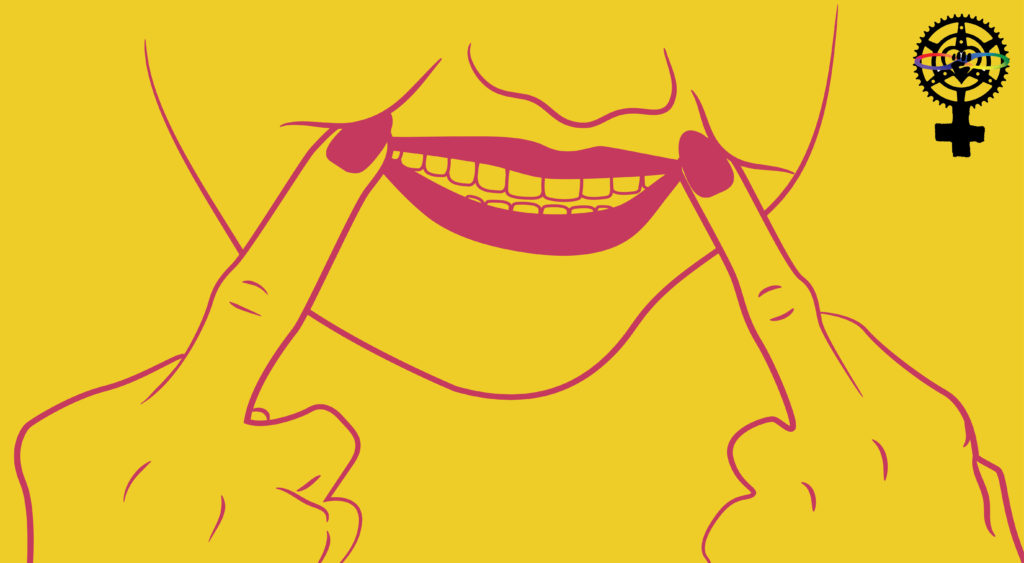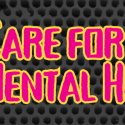
Radical Care for Physical and Mental Health

In a world of systems that aim to keep us feeling helpless, sick, and disconnected from our bodies and emotions, it’s crucial to learn how to care for ourselves—and each other. From reproductive freedom to recruiting herbal allies, from supporting your own mental health to offering support to loved ones, life is full of opportunities to take back our agency and see ourselves as collaborators in healing.
To celebrate the release of new zine How to Get Your Period, here’s a collection of works that embrace a radical understanding of “self care” as an empowering ethic for healthier individuals and communities.
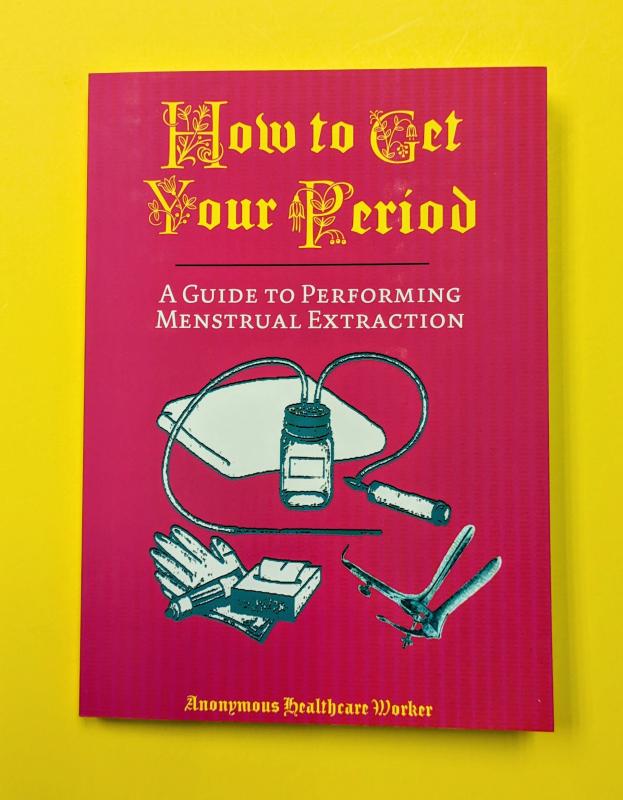
How to Get Your Period, by Anonymous Healthcare Worker
In 1971, as part of their work with their feminist reproductive collective, Lorraine Rothman and Carol Downer invented menstrual extraction (ME), a suction process to pass the entire period all at once, which has the side effect of ending any undetected early pregnancy. An underground network of providers has kept ME alive ever since, and now, in a post-Roe era, the demand is surging. Written by an anonymous medical professional, this book provides a short history of ME and detailed instructions and diagrams explaining how to safely and effectively perform a manual exam, use a speculum, assemble a Del-Em kit, and complete a menstrual extraction procedure. You’ll also learn when not to perform ME and find an overview of other safe and effective options for bringing about menstruation or ending a pregnancy in the first trimester. In addition to heralding the incredible discovery of these historical heroes and affirming the need for abortion rights, this book offers menstrual extraction as a method to understand and protect our own bodies, choices, and reproductive rights even as they are under attack.
Alive With Vigor! Surviving Your Adventurous Lifestyle, edited by Robert Earl Sutter III
Alive With Vigor! compiles stories of surviving—and thriving—from a wide spectrum of contributors. Deeply personal essays recount matters of preventative health care, the hard decisions we each have to make, Do It Yourself health care, and how to deal with extracting health care from government/corporate health care systems. Alive With Vigor! has a special focus on queer, youth, and transgender people, recognizing that everyone has different health care needs. Finally a how to book where you can put the advice directly to use in your life!
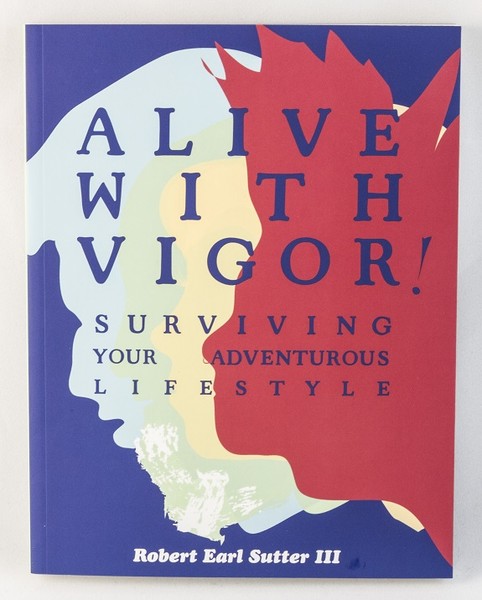
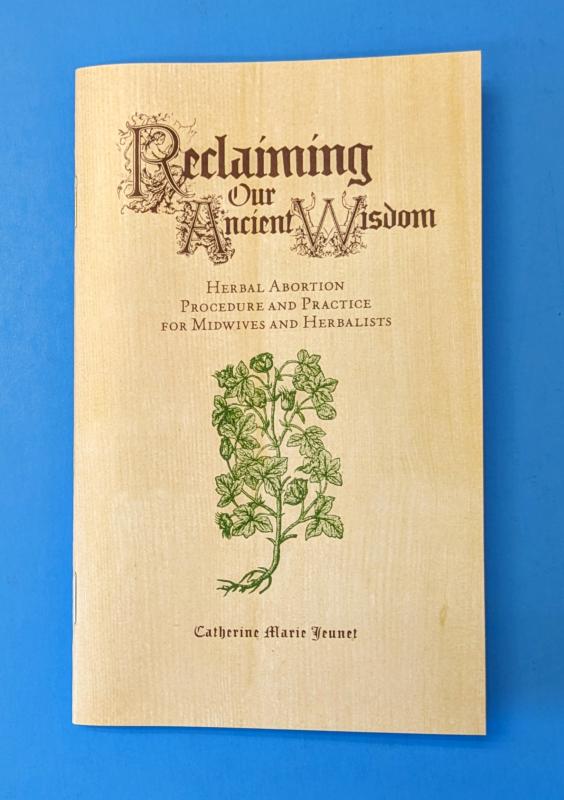
Reclaiming Our Ancient Wisdom: Herbal Abortion Procedure and Practice for Midwives and Herbalists, by Catherine Marie Jeunet
A guide for practiced herbalists and midwives to better serve their communities with herbal abortion options. Beautifully illustrated with botanical drawings from Gerard’s Herbal and other early texts. The time is now for us to learn from forgotten knowledge and keep ourselves and the people around us healthy and fully in charge of their own reproductive health and rights.
Stressed & Overwhelmed: Good Habits for the Exhausted Overachiever,
by Elly Blue
If you’re the sort of person who takes on every project and responsibility until suddenly it’s one thing too many and you get completely burnt out and drop everything and start the cycle again from scratch … this zine is for you. Includes hard-won pointers on how to train yourself to have more sustainable work habits (using tricks from dog training!), shore up your professional boundaries, and get more organized so you can have a better handle on all the things you are very likely to continue taking on. Stress and overwhelm are tough to live with every day, and the go-getters of the world could use to take better care of ourselves and have more fun.
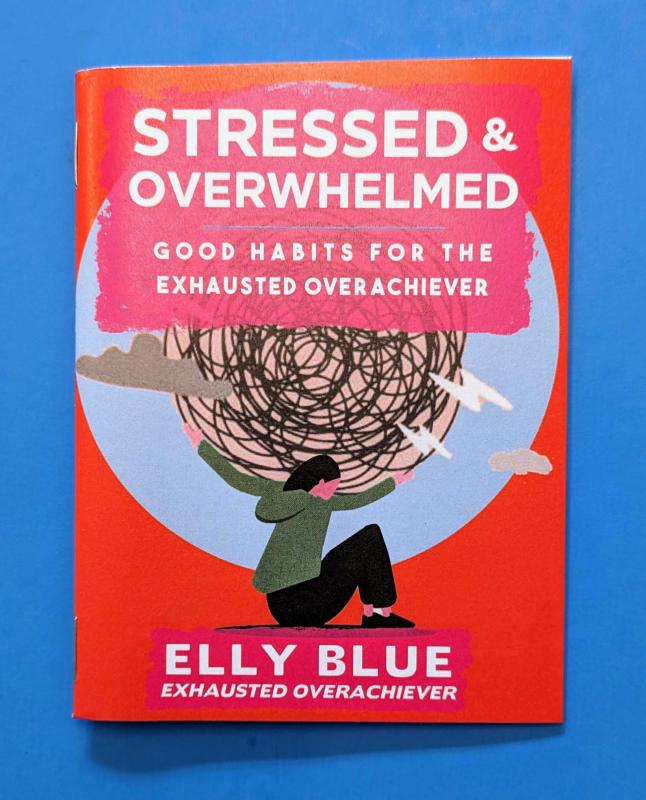
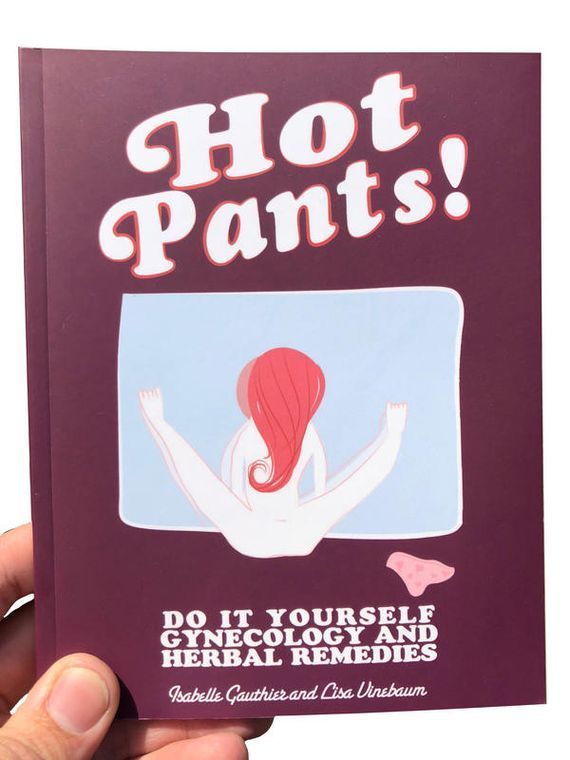
Hot Pants: Do It Yourself Gynecology, by Isabelle Gauthier & Lisa Vinebaum
A thorough and classic examination on tried and true herbal treatments for common gynecological problems, as well as great basic sexual health info for anyone with a uterus. It begins, “Patriarchy sucks. It’s robbed us of our autonomy and much of our history. We believe it’s integral for women to be aware an in control of our own bodies.” Diagrams and herbal remedies teach you how to diagnose and heal many basic problems from bladder infections to inducing your period to ease cramps to even dealing with pregnancy. Learn herbal remedies to ease every stage of the menstrual cycle. There’s references to further reading, descriptions of herbs, and even a section on aphrodisiacs. The sections include: Body Mapping (in brief), About Menstruation, Love in the Age of Aids, 35 years of fertility, STDs and Other Aliens, The Ovaries and the Uterus, Aphrodisiacs, How to Prepare and Use Herbs, Picking Your Own Herbs, Herbal Properties and Dosages, Interesting Reading, Useful Addresses. This book deserves to sit next to your copy of Our Bodies, Our Selves.
Support: Feminist Relationship Tools to Heal Yourself and End Rape Culture, by Cindy Crabb
Support encourages everyone to take a step back, listen, think, and talk about sex, consent, violence, and abuse. If you or someone you know have ever been assaulted or victimized, how to be an ally can be confusing. These words and the connection they offer can help. With ideas and encouragement to help yourself and others cope with, prevent, and end sexual violence and abuse, this collection of personal experiences, advice, guest articles, and comic excerpts wants to help.
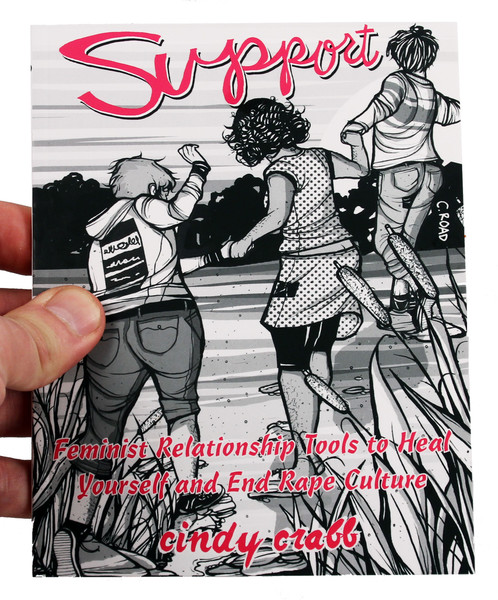
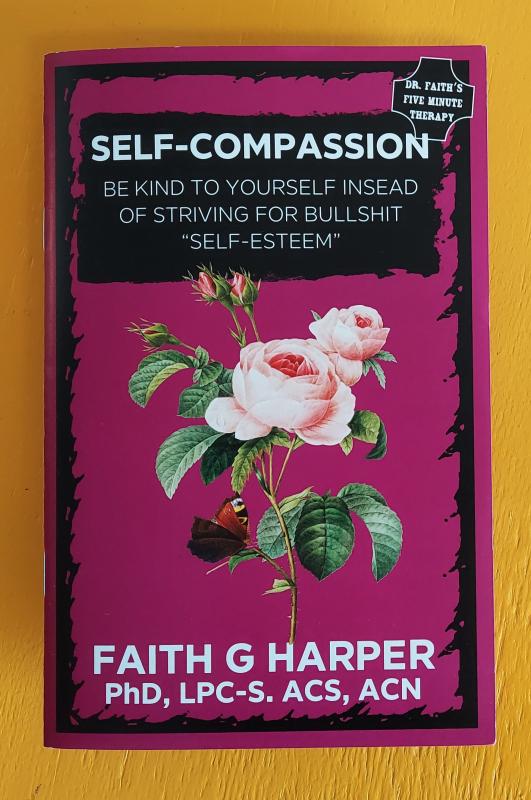
Self-Compassion: Be Kind to Yourself Instead of Striving for Bullshit “Self-Esteem,” by Dr. Faith G. Harper
For decades, the U.S. has been obsessed with “self-esteem” or rather with our lack of it. But self-esteem isn’t actually that great, and getting all puffed up about yourself isn’t exactly a recipe for the good life. How about self-compassion instead? Bestseller Dr. Faith explains the difference between the two and offers some helpful exercises in developing more compassion for yourself. It’s actually very different, she explains, than letting yourself off the hook for your bullshit. It’s more helpful to accept that you’re human so that you can learn and grow rather than push aside your problems or wallow in your mistakes. Also, kindness to yourself helps you be more kind to other people as well. Everyone wins!
Fireweed #1: A Zine of Grassroots Radical Herbalism and Wild Foods Connecting With Kids and Family Life, by Jess Krueger
Fireweed, as the full title implies, is all about introducing your kids to plants. It’s about teaching young children the joy of gathering edibles, and making them into candies, teas, jellies, or even medicines. There’s tips for going on plant walks, and suggestions for good introductory plants like ginger, mint, and marshmallow. There are recipes for prickly pear crisp, catnip tea, and simple fermented herbal infusions. The authors conduct a couple interviews with parents about their experiences sharing plants with their children. This zine is really inspiring.
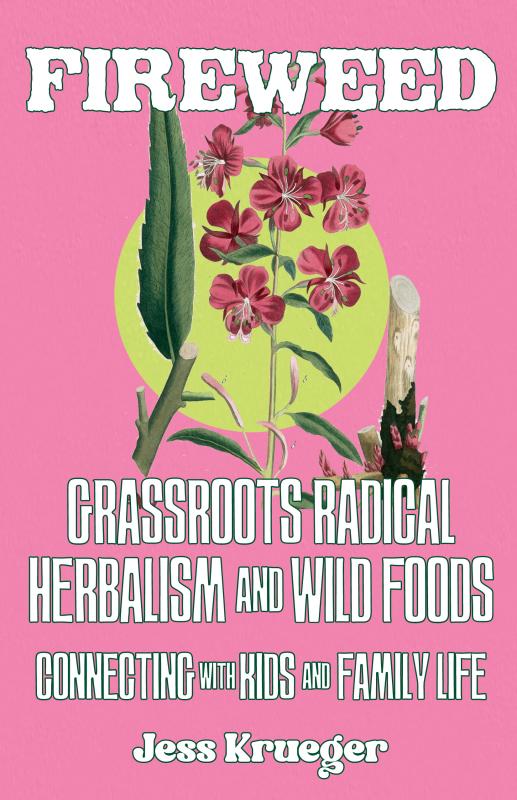
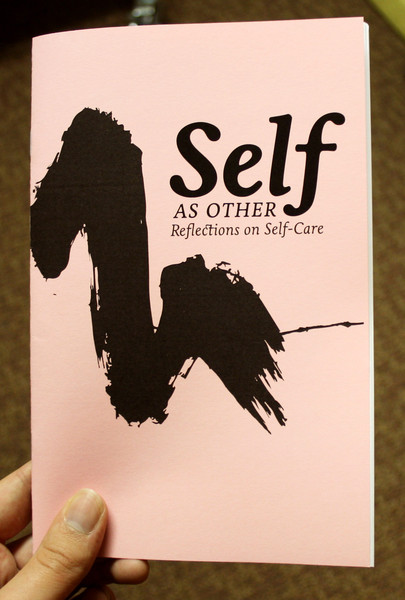
Self As Other: Reflections on Self-Care, by Corina Dross & CrimethInc
In activist circles and elsewhere, it has become commonplace to speak of self-care, taking for granted that the meaning of this expression is self-evident. But “self” and “care” are not static or monolithic; nor is “health.” How has this discourse been colonized by capitalist values? How could we expand our notion of care to encompass a transformative practice?
Following “For All We Care,” analyzing the contradictory currents within the category of care, Crimethinc presents “Self as Other,” combining that text with three more essays in which individuals recount their personal struggles with the concept and practice of care.
Shop the list for even more of our radical self-care titles, or check out some packs. Keep taking care of each other!
